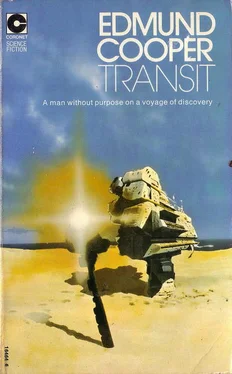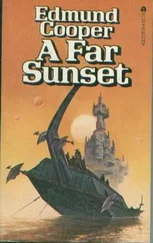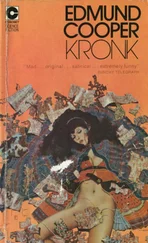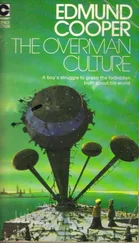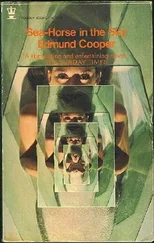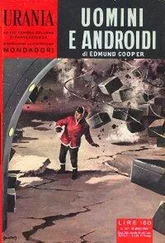We must love one another or die.
W. H. Auden
The face stared back at Richard Avery, expressionless as a ghost. It was a bloodless face, he thought, the face of a man in limbo. It was the kind of face you did not look at too closely on the Underground in case its owner had died.
He moved away from the silvery grey mirror of the puddle and heard his feet squelch in the soggy earth. He gazed at the gaunt trees and the dull green emptiness of Kensington Gardens. London’s Sunday traffic purred moodily in the distance; but February seemed determined to drown the landscape in a watery silence. And as the sad thin light of afternoon patiently died, it was possible to believe that Kensington Gardens was the most desolate place on earth.
The trouble with Avery was simple. He was recovering from influenza. The depression of the landscape and the depression of his state of mind matched perfectly, reinforcing each other. He should have stayed indoors watching the television, reading a book or playing his habitual meaningless games with the patterns on the wallpaper.
But, after a week’s imprisonment in his two-roomed flat, after more than a hundred waking hours of solitary confinement with nothing but the memory of inadequacies and disappointments to keep him company, anything seemed preferable to the voices that never made a sound, the accusations that were never uttered.
At thirty-five, Richard Avery was a failure. Not an amateur failure; a professional failure. He had made a pretty good job of it. Fifteen years ago he had been all set to be an artist. Not necessarily a good painter, but at least one who slapped colour on the canvas as if he really meant it.
But that was fifteen years ago, when the world was young and he was very much in love. Her name was Christine. She had brown hair, brown eyes, a wide sensitive mouth and breasts that were compact, tantalizingly innocent and beautiful. She also had leukaemia and a penchant for living gaily upon borrowed time. But the great thing about her was her tenderness. She loved Avery and she was sorry for him, deeply and tenderly sorry. For him, not for herself. That was the big joke. She knew that he needed tenderness. She knew that he needed all the tenderness he could get.
They lived together for just over a year; and during that time (in retrospect it seemed like an idyll at one with the great romances of history) he painted her more than a dozen times. He painted her naked, clothed, in repose, in landscapes and even in bed. He wanted to paint everything he knew about her, because there was so little time.
There was one thing he couldn’t paint, though. He couldn’t paint her tenderness. It was too big for a canvas, too brilliant for colour.
But it didn’t last. It faded as her strength faded. And in the end, when she died, there was nothing left but disappointment and fear and the tight unspeakable loneliness of a small child. He was with her then, all the time. He watched the personality slowly dissolve in a sea of frustration and, ultimately, that small lovely body washed up like meaningless debris on the final shore.
Afterwards, he had a nervous breakdown. It was predictable. But when he came out of it, he couldn’t hold a paintbrush without trembling, and he knew that he would never paint again. If he had been a great artist, nothing could have stopped him—not even the destruction of a hundred Christines. From which, of course, a conclusion could be drawn; and, to justify his failure, Avery quickly drew it.
The only problem that remained was to find a reasonably comfortable hole and crawl into it until time and mortality provided their own solution. The one thing he determined to avoid above all others was emotional involvement. His first experience would have to be his last. It was too painful ever to endure again. Not the ecstasy of loving, but the terrible dread of losing.
So he settled down to a visita. of years without purpose, to a life of teaching art to children whose conception of the human form had been modified by cinema posters and deodorant advertisements, whose gods lived mysteriously in black discs, repeating parrot cries of anguish at the stimulus of a needle, and whose maturing values could be expressed in terms of pay cheques, fast cars, drugged orgasms and the ultimate hypnosis of suburbia. He settled down to a life of pointless waiting, mere endurance, punctuated only by the recurring problem of evenings, week-ends, holidays and—occasionally —illness.
He did not live in the past. Neither did he live in the present or have any hope for the future. Regularly he contemplated suicide—and just as regularly failed to reach a decision.
Now, alone in Kensington Gardens with the late February afternoon closing round him like an expectant shroud, he began to hope that the edge of his depression would remain sharp long enough for him actually to do something about it.
But, regretfully, he knew that it wouldn’t. He would merely carry the dull ache back to his two rooms and, as it were, vary the position slightly. Presently he would be well enough—or, at least, energetic enough—to become anaesthetized by another dose of teaching.
It was at that stage of introspection, as he turned in his tracks to walk back through the sodden half-freezing grass, that he noticed the crystal.
It lay in the grass, tiny and white and burning. At first he thought it was ice or a snow-flake. But neither ice nor snow are luminous; and this was so full of radiance that it seemed like a crystal of cold fire.
Suddenly, he knew it was the most beautiful thing in the world. He stooped, put out his fingers. And then, in an instant, there was nothing. Nothing but darkness and oblivion. A split second demolition of the world of Richard Avery.
After a time—it might have been minutes or years—the oblivion somehow became less than absolute, and he knew he was dreaming. Images, half-formed, shimmered vaguely like reflections on a face of liquid darkness.
He saw stars. He literally saw stars. Whirlpools of stars —bright and blinding and frozen in the frothy glory of the great nebulae. He was drifting down a dark river of space. He was drifting to the end of the cosmos; and island universes—unimaginable dust bowls of light— seemed to flash by in the icy rapids of creation.
It was too cold—not physically cold, but spiritually cold. His half-conscious mind rejected the patterns of awful splendour, groping hungrily for meaning and relief and location. He came to a sun; and the sun had given birth to planets. One of the planets was blue and white with clouds, green with oceans, red and brown and yellow with islands.
‘This,’ said the voice, ‘is home. This is the garden. This is the world where you will live and grow and know and understand. This is where you will.
The voice was gentle, but he was afraid of it. It came echoing at him down a draughty tunnel of centuries. Its whisper was thunder; and its words—such gentle words —were like the sentence for an unknowable crime.
. He was afraid. Fear burned like acid through the fluffy twilight of consciousness. Suddenly, he was awake. Agonizingly awake….
Avery found that he was lying on a bed. The bed was in a room whose walls were all metal. There were no windows. The ceiling glowed. It did not glow painfully but with enough light to provide pleasant illumination.
Obviously he was in hospital. He had passed out in Kensington Gardens, and they had taken him to hospital. But a hospital with metal walls….
He sat up quickly, and was rewarded by a roaring in his ears, a throbbing behind his eyes. He waited patiently until his vision cleared, then tried to collect his thoughts.
Читать дальше
